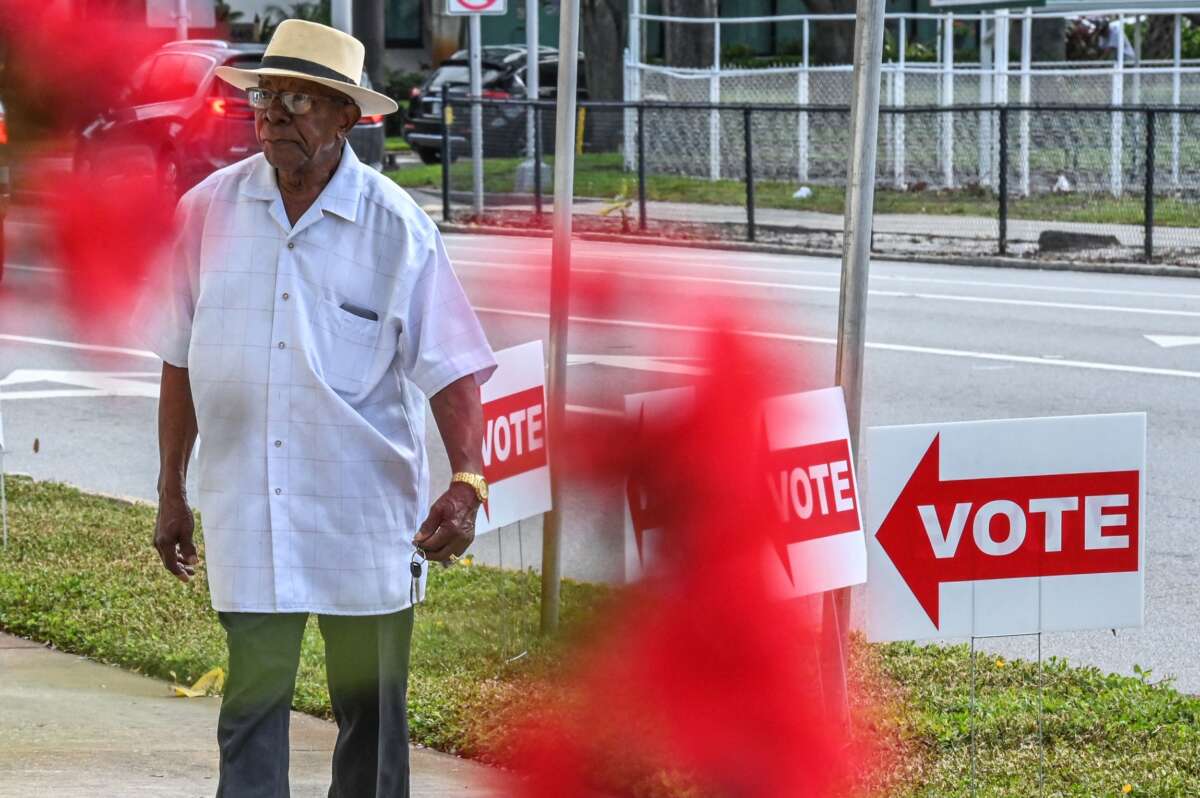Last week, five residents of the Tampa Bay area of Florida filed a federal lawsuit alleging that racial gerrymandering had diluted the voting power of Black voters in two state Senate districts.
The two Senate districts in question, which were drawn by the state legislature in 2022, rest along the banks of Tampa Bay. District 16 is represented by Democratic State Sen. Darryl Rouson, who is Black, while District 18 is represented by a white Republican, State Sen. Nick DiCeglie.
According to Florida law, lawmakers must draw state legislative maps in a way that doesn’t “diminish” racial groups from being able to elect representatives of their choice. Ostensibly, District 16 was drawn with that requirement in mind.
However, the lawsuit alleges that the southern parts of St. Petersburg — which are predominantly Black — were improperly packed into the 16th District, instead of combining that area with the rest of the city and the 18th District to the north.
Looking at a map of the districts, the gerrymandering allegations seem highly plausible, as the southern portion of St. Petersburg that is part of the 16th Senate District is detached completely from the rest of the political boundary by the bay of water.
If the maps had been drawn appropriately, the lawsuit alleges, Black voters would have been given opportunities to have their voices heard in both districts, not just the 16th.
The five voters in the federal lawsuit are being represented by the American Civil Liberties Union of Florida and the Civil Rights & Racial Justice Clinic at New York University School of Law.
“Far from advancing representation, the enacted districts dilute Black voters’ power. The state could have drawn these districts to both avoid the diminishment of Black voting power and respect traditional redistricting criteria,” the lawsuit states. “Instead, the state engaged in racial gerrymandering that unconstitutionally abridges plaintiffs’ rights to the equal protection of the laws.”
Daniel Tilley, legal director of the ACLU of Florida, disparaged lawmakers for wrongly giving the impression that the maps were empowering Black voters when they were actually making it harder for them to have true representation across the two districts.
“Diluting the voice of Black voters while amplifying the political power of others is unfair, undemocratic, and unconstitutional. Black voters in St. Pete and Tampa deserve full and fair opportunities for representation,” Tilley said in a statement.
Deborah N. Archer, director of the Civil Rights & Racial Justice Clinic, similarly condemned the lawmakers behind the maps.
“These districts deny communities of color equal representation and dilute the votes of Black residents in the Tampa Bay region,” Archer said. “We look forward to overturning this unconstitutional map in court.”
